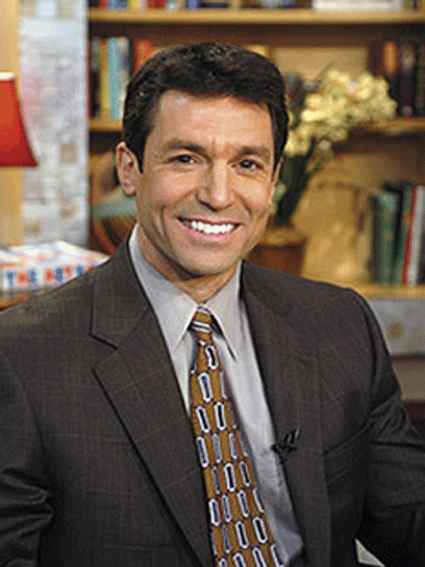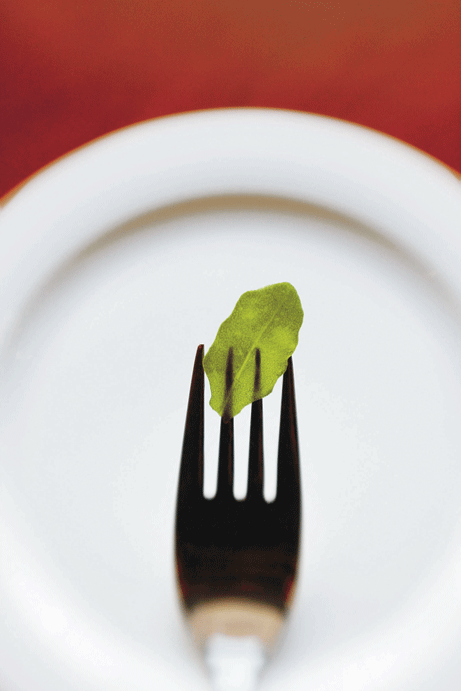
![]() Diet and Health
Diet and Health

Fed up with Bad Diet Advice
Eating well is not about deciding which nutrient class to abandon. It’s about choosing the wholesome foods made up of all three nutrient classes.
By: Dr. David L. Katz*
I thought – and hoped – that preposterously silly diet advice in the form of “eat anything you want, just cut fat” or “just cut carbs” had taken its last breath. But science writer Gary Taubes in his new book, “Good Calories, Bad Calories,” seems bent on reviving the menace of dietary nonsense.
Taubes – a media person with countless media contacts – is getting plenty of exposure, making the threat from his book far from trivial. Unable to look the other way, I’m holding a silver stake to dispatch this diet monster before it does harm. (I don’t know Taubes who may be a very nice guy. I only know that when it comes to diet advice, he’s full of it!)
“Good Calories, Bad Calories” takes nearly 500 pages to defend Taubes’ iconoclastic perspective on diet: (1) carbohydrate is the root of all dietary evil, and (2) calories don’t really count. The first is wrong, and the second is nothing short of ridiculous.
The motivation for Taubes’ assault on not just carbohydrate, but nutrition science, appears to be the conviction that scientists too readily fall in love with a hypothesis and fail to see past it. I’ve never seen a more dramatic demonstration of this fallibility than Taubes’ own book!
For example, the impressive Diabetes Prevention Program, a $174 million NIH clinical trial, which demonstrated that a sensible, balanced diet in combination with moderate physical activity can reduce diabetes rates by nearly 60 percent in high-risk adults, is mentioned once in a page and a half, and simply for purposes of highlighting its deficiencies. Taubes dismisses the trial by alleging we can’t tell whether it worked because it reduced fat (it did), calories (it did), or carbohydrate (it shifted calories to wholesome foods, and thus provided less refined starch and added sugar). Taubes clearly can’t see beyond his beauty pageant perspective of competing nutrient categories to consider what worked: a healthful diet.
It’s been years since mainstream nutrition experts said “just cut fat.” By responding to nutrition science as it evolves, our party line has evolved to distinguish between harmful and healthful fats. I’m sure you’ve heard olive oil and fish oil are good for you – but Taubes writes as if he has not. My own views have shifted over the years from thinking that less fat is good, to thinking that quantity of fat matters – but quality of fat matters even more. Certain kinds of dietary fat – notably most saturated fats, and trans fat – are convincingly linked to adverse health outcomes, from obesity to cardiovascular disease. Taubes simply ignores the evidence. Offering a historical overview of U.S. dietary and health patterns, he would have us believe that since efforts to cut fat did not appreciably improve the public health, we were wrong to think our dietary fat intake an adverse exposure in the first place.
Certain kinds of dietary fat – notably most saturated fats, and trans fat – are convincingly linked to adverse health outcomes, from obesity to cardiovascular disease. Taubes simply ignores the evidence. Offering a historical overview of U.S. dietary and health patterns, he would have us believe that since efforts to cut fat did not appreciably improve the public health, we were wrong to think our dietary fat intake an adverse exposure in the first place.
We replaced diets that were – and still are – excessive in potentially harmful fats with diets excessive in refined starches and added sugars.
The fact is, we never really cut fat in the first place – data from the National Health and Nutrition Examination Surveys run by the CDC suggest we merely diluted down our fat calories by adding lowfat foods, such as Snackwell cookies, to our diets!
When that got us into trouble, we cut carbohydrates not by reducing refined starch and added sugar in our food supply, but by generating new processed foods of dubious nutritional quality – but allegedly low in “net” carbs. Low-carb brownies with a first ingredient of trans fat were among the offerings!
Taubes is at his silliest in denying that calories are in any way related to weight gain. That’s like saying that weight has nothing to do with gravity. No gravity, no weight. Calories are not a nutrient, but a measure of the energy stored in food; they are the force that makes weight gain possible.
Body fat is energy stored in the body. To make matter, such as fat, requires energy. Calories are simply a way of measuring how much of that energy a given food provides. Of course, other factors, such as hormones and genes, influence how efficiently calories are turned into mass, be it muscle or fat.
But matter cannot be produced without energy input. Suggesting that weight gain is not about calories is not an argument with mainstream nutritionists. It is an argument with Sir Isaac Newton, and the fundamental laws of physics. Whatever writing awards Taubes may have won, I’ll stick with Newton.
In my view the “dietary fat is bad” position the book attacks no longer prevails, and the “dietary carbohydrate is bad” position it defends, makes for a very sorry replacement. Here’s what you need to know to make good dietary choices that won’t change with each new book that comes out:
There are three major nutrient classes: carbohydrate, protein, and fat. Foods from lollipops to lentils are high in carbohydrate. Foods from salami to soy are high in protein. And foods from pepperoni to peanut butter are high in fat.
It stands to reason that eating well is not, and never was nor will be about deciding which nutrient class to abandon. Eating well is – and always was and will be – about choosing the wholesome foods made up of all three nutrient classes.
I very much like the succinct advice of another science writer, Michael Pollan, who recently recommended in his New York Times Magazine cover story: “Eat food, mostly plants, not too much.” That’s diet advice I can actually swallow.
* David L. Katz, MD, MPH, FACPM, FACP; Director, Prevention Research Center, Yale University School of Medicine and medical contributor for ABC News. He may be reached at www.davidkatzmd.com.